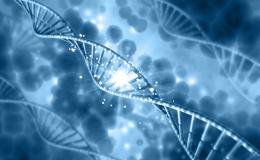Can a Genealogy DNA Test Really Tell Me if I Have Hereditary Cancer Genes?
June 21, 2020
Companies such as Ancestry and 23andMe, which sell novelty DNA ancestry tests for genealogy research, are now promoting the ability of their tests to detect hereditary cancer genes. Hereditary cancer genes are altered genes that increase an individual’s risk of developing cancer and are inherited by a child from their parent, usually resulting in a family history of cancer. While the convenience of being able to screen your DNA for hereditary cancer genes while learning about your genealogy may at first sound appealing, hereditary cancer screenings performed by clinical labs versus ancestry testing companies are not the same, and there are critical differences between the two tests.

Patient Privacy
23andMe and Ancestry are direct-to-consumer (DTC) companies and not clinical laboratories. DTC providers are not held to the same standards as certified clinical laboratories, which include standards relating to patient privacy. CLIA-certified clinical laboratories are required to protect personal medical information; any patient information collected by a certified clinical laboratory is protected by the Health Insurance Portability and Accountability Act (HIPAA) and the information cannot be released without express patient content. In contrast, DTC providers may have language in their consumer agreement that revokes your ownership of your personal genetic information, allowing DTC companies to not only use your genetic information in any way they choose, but also sell it.
The Streetlight Effect
Much like the man searching for his keys on a dark night under the streetlight, we can’t always expect to find things in the easiest place to look. DTC hereditary cancer tests often only screen for a small number of alterations--or just the common DNA “misspellings”--in genes associated with hereditary cancer, despite the fact that more than 1,000 different variations in just two hereditary cancer genes, BRCA1 and BRCA2, are known to increase the risk of cancer development. Because of this, negative hereditary cancer screening results (meaning no harmful hereditary cancer genes are detected), from DTC provider tests may give individuals a false sense of security regarding their predisposition to cancer development since the test may look for only a few, common hereditary cancer gene variations and an individual may possess a variation that isn’t covered by the screening.
Information Quality
Clinical laboratory certification agencies require that certified clinical laboratories maintain high standards for not only personal information protection, but also for the accuracy of their test results. Non-clinical labs that perform hereditary cancer screenings are not held to the same testing standards and may use more error-prone methods for DNA sequencing and analysis than clinical laboratories. Because of this, many physicians do not consider genetic test results from DTC providers sufficient for medical decision-making, and often repeat tests using CLIA-certified clinical laboratories to determine the accuracy of the results and make future disease monitoring and treatment recommendations, which ultimately increases the time and money required for actionable hereditary cancer screening information.
In short, the company you entrust with your genetic information matters. While an individual’s genetics are just one aspect of a person’s overall disease development risk, it is important that you and your physician have confidence in and can utilize the results of your hereditary cancer screening in assessing your total cancer risk and developing a treatment plan. The Kailos Genetics Expedio™ Hereditary Cancer Screening is designed using the most current scientific research and provides the most comprehensive hereditary cancer test available today. Our laboratory is CLIA-certified, adheres to the highest standards of personal information protection and testing accuracy, and never sells genetic information. Click here to order your Expedio™ screening or contact us with any questions you have regarding our company or our screening products.




